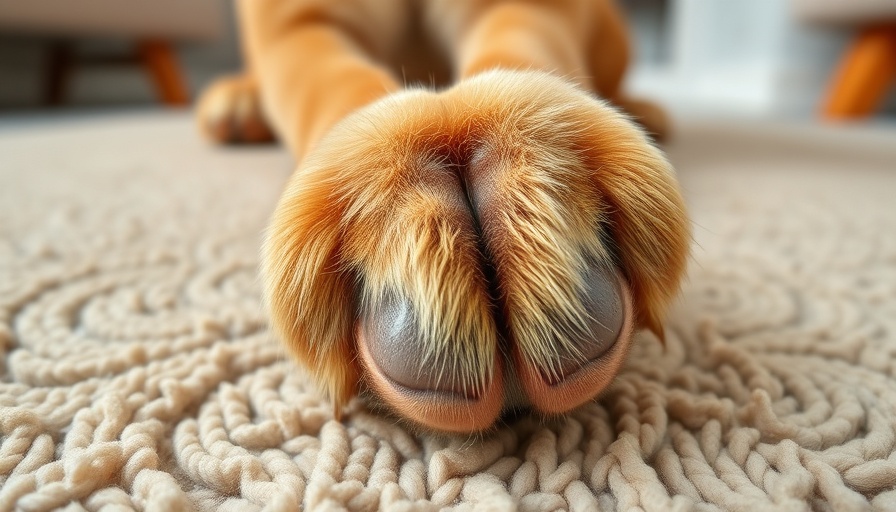
Understanding Knuckling in Dogs
Knuckling in dogs is a condition where a dog walks on the knuckles of their front paws instead of the pads. This can be concerning for pet owners and is often indicative of underlying health issues. If you've noticed your furry friend displaying this behavior, it’s essential to understand the potential causes and treatments available.
What Causes Knuckling?
There are several potential causes for knuckling in dogs, including neurological disorders, degenerative diseases, and even injuries. A common culprit is the lack of proprioception, where a dog loses the ability to sense their foot position. This can happen due to conditions such as:
- Intervertebral Disc Disease: This occurs when the discs of the spine degenerate, leading to nerve compression.
- Cervical Spondylomyelopathy: Often referred to as "wobbler syndrome," it can cause instability in movement.
- Other Neurological Disorders: Various conditions affecting the brain and spinal cord may impair a dog’s coordination and ability to walk properly.
Why Is This Important for Pet Owners?
Recognizing knuckling in your dog is crucial because early intervention can prevent further complications. Many of the diseases associated with knuckling can lead to chronic pain or permanent disability if left untreated. Pet owners should consult a veterinary professional at the first sign of trouble. Ignoring initial symptoms may lead to more severe health issues down the line.
Veterinary Diagnosis and Treatment Options
If you notice your dog knuckling, your veterinarian will likely conduct a thorough examination, which may include neurological tests, X-rays, and possibly an MRI if needed. Treatment can vary based on the underlying cause:
- Physical Therapy: Many dogs benefit from rehabilitation exercises tailored to strengthen their muscles and improve balance.
- Medication: Pain relief medications or anti-inflammatory drugs can help manage discomfort.
- Surgery: In some cases, surgery may be necessary to alleviate the pressure on nerves or correct spinal issues.
The Importance of a Healthy Weight
Maintaining a healthy weight is vital for all dogs, especially those exhibiting knuckling. Excess weight can exacerbate joint issues, putting more strain on their bodies and making recovery more challenging. Regular exercise tailored to your dog's abilities can keep them fit, enhancing their overall health and life quality.
Preventative Measures and Continuing Care
While not all cases of knuckling can be prevented, providing a supportive environment can help manage your dog’s health. Here are some tips:
- Use Non-Slip Flooring: This helps dogs maintain their footing securely.
- Provide Adequate Support: Utilize ramps or cushions for older dogs to aid mobility.
- Regular Vet Visits: Keeping up with veterinary appointments ensures any potential issues are caught early.
Conclusion: Taking Action for Your Dog's Health
In conclusion, knuckling in dogs is not merely a quirky behavior; it can signify serious health concerns that require attention. By staying informed and proactive, you can ensure the best chance for a healthy and happy life for your pup. Don't hesitate to consult with veterinarians as soon as you observe any troubling signs. Together, you can find the best path forward for their care and well-being.
Being a responsible pet owner means facing these challenges head-on. Your dog's health and comfort should be your priority, and understanding issues like knuckling can make all the difference in their quality of life.
 Add Row
Add Row  Add
Add 




Write A Comment